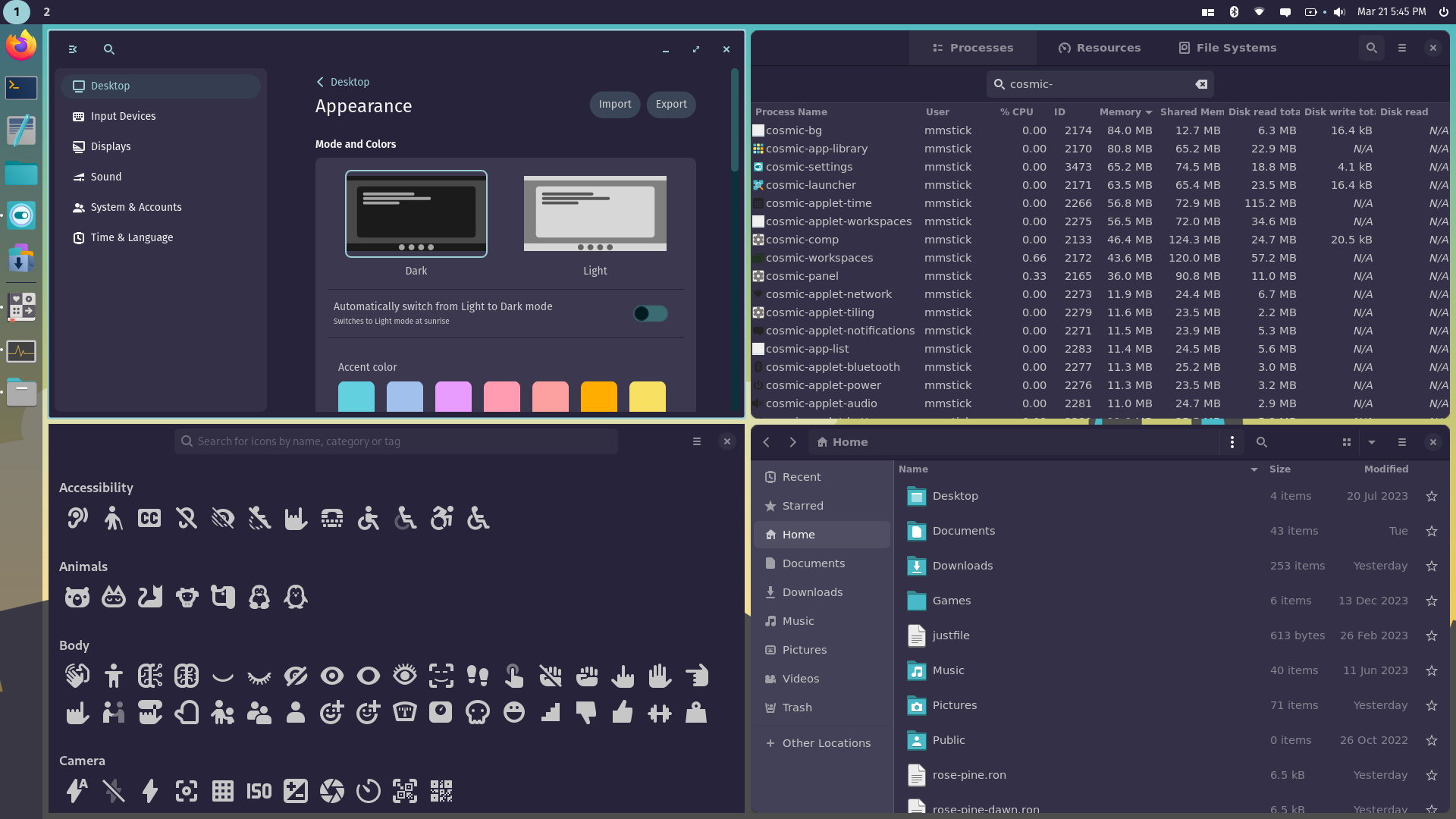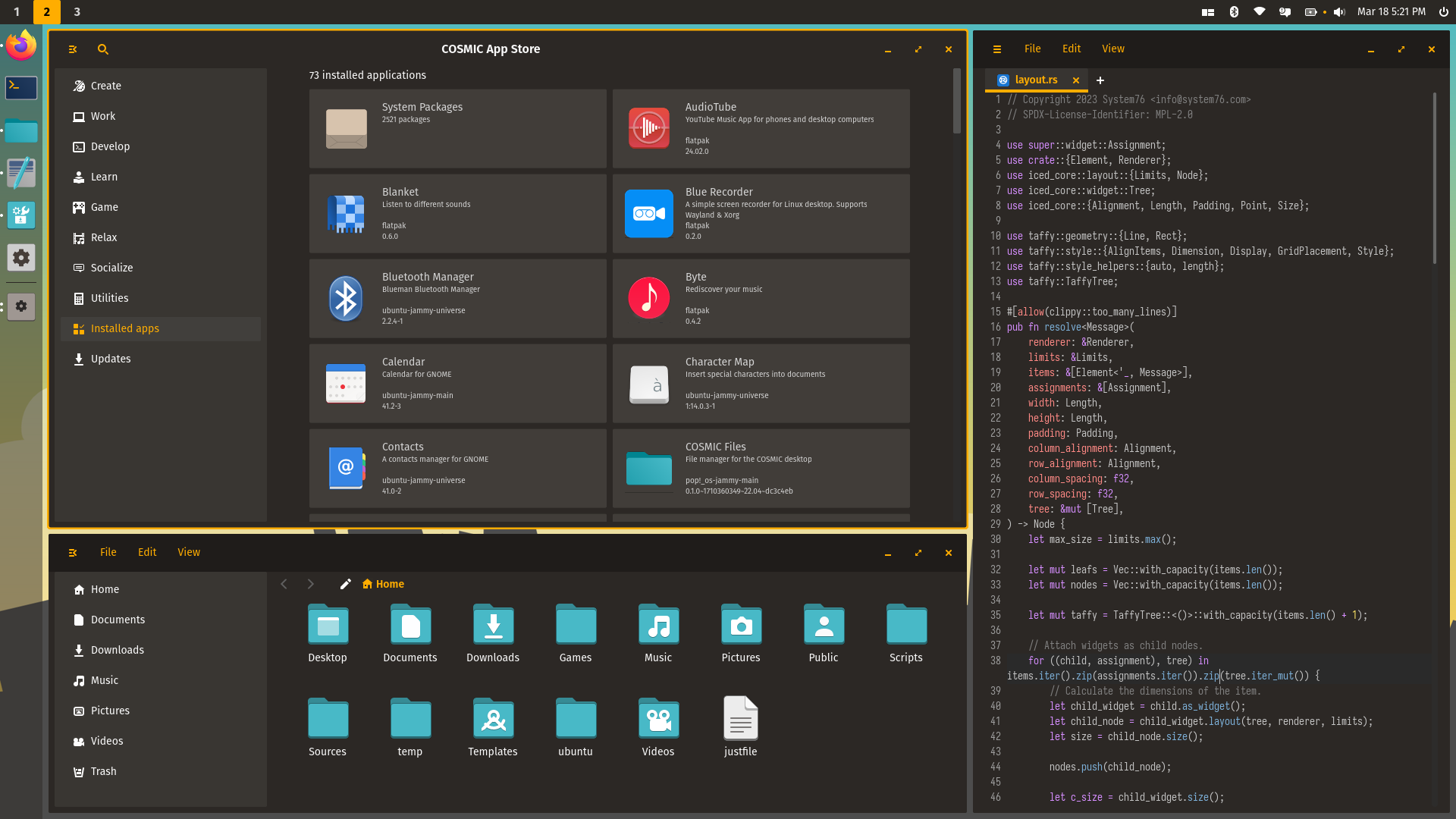Wayland compositors use IPC over a UNIX socket to communicate with Wayland clients. To increase security and enable sandboxed applet support, COSMIC applets use the security-context protocol for their IPC connection to the compositor. To be an applet, COSMIC applications use the layer-shell protocol to behave as an applet. Neither of which were made for COSMIC. Some other Wayland compositors support these protocols. You can see which compositors support the protocols at the bottom of the wayland.app protocol pages.
In practice, because Rust libraries are always statically-linked, the MPL-2.0 is equivalent to the LGPL in spirit. Meanwhile, because of the static linking restrictions in the LGPL, the LGPL is effectively no different from the GPL. Hence, you're going to find a lot of open source copyleft projects from the Rust ecosystem preferring either GPL or MPL-2.0, where MPL-2.0 is used in libraries where LGPL would have used previously in C projects. Dynamic linking is essentially going the way of the Dodo.
The Linux kernel already allows proprietary modules via DKMS, and a handful of vendors have been using this for decades, so this is no different. Case in point: NVIDIA driver, and Android vendor drivers.
All source code in Rust is statically-linked when compiled, which thereby renders the LGPL no different from the GPL in practice. For Rust, the MPL-2.0 is a better license because it does not have the linking restriction.
Niri is also based on the smithay library we use for COSMIC, so there's some collaborative work between COSMIC and Niri on Smithay.
applets live in their own process and communicate via Wayland protocols (behind a COSMIC API)
Even better. A COSMIC API was not necessary since Wayland protocols already exist for this (layer-shell and security-context).
No, we won't be spending any development time on porting all of the patches in 22.04 to 24.04. GNOME is done.
You should stop using Linux then. The Linux kernel, along with many open source software, is developed and sponsored by for-profit organizations. Either directly or indirectly. Without them, open source wouldn't be able to thrive.
I'd recommend spending some time reading about it. It's not as hard as he thinks. Applications developed for Linux are quite easy to port to Redox. It supports many of the same system calls and has a compatible libc implementation. The kernel does have abstractions to ease the porting process. And if you're going to make a new kernel today, you should do it right and make a microkernel like Redox. One of the benefits of having a microkernel is that it doesn't matter what language you write drivers in. They're isolated to their own processes. Rust, C, C++, whatever.
It does work like this, but as with justice, the wheels can be slow at times.


Not ready to release yet